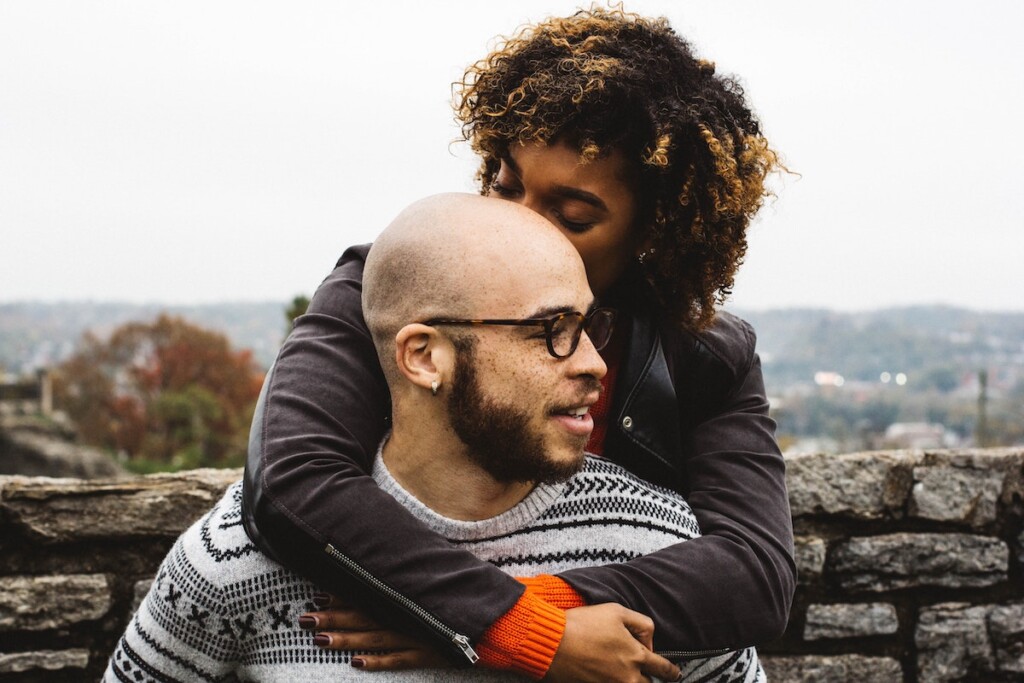
You’re out on a date and immediately click, but when it comes time to order drinks the person across from you sticks to mocktails. You know it shouldn’t be a big deal. But alcohol permeates our culture, so it can be a bit jarring to realize that you’re seeing someone who doesn’t drink. While some people seek out sober dating, others fall into a relationship with someone in sobriety unintentionally.
Whatever the reason, dating a recovering alcoholic doesn’t have to be scary. Remember, a person who is in recovery is usually someone committed to growth, and who is practiced talking about uncomfortable topics. Here’s what you should know about how to date someone who is sober, plus a few of our favorite sober dating tips.
1. Don’t make a big deal out of it.
Sometimes a person’s sobriety is central to who they are. But that’s not always the case. Sure, you might find it interesting that your date gets through life without the chemical assistance of beer or wine. But it’s much more telling to learn that your date is into competitive mountain biking, or that they just had an art show, or that they volunteer at their local animal shelter every week. Remember, sobriety is just one aspect of the person you’re dating, so it shouldn’t be the central focus of your time together.
2. Help out by planning ahead.
Grabbing drinks is the default date option, but it can be fraught for people who are sober. Instead of meeting at a bar or restaurant, suggest sober date ideas. This lets you discover that there’s more to your date than just their sobriety. Finding sober date ideas can be tricky during the pandemic, but there are still plenty of options. If you’re comfortable being around others, catch a concert at a venue that isn’t a bar or try a painting class. If you prefer to minimize risk, take a walk or cook a meal together at home.
3. Be yourself.
When you realize someone doesn’t drink, you might feel self-conscious about your own behaviors. It’s ok to think twice about your relationship with alcohol. Yet, you have to make sure you’re being yourself while dating. Making small changes is alright, but making drastic changes could be a sign that you’re trying to fit into who this date wants you to be, rather than who you really are.
4. Allow them to tell their story.
Once you get to know someone a bit better, allow them space to tell you their story about why they are sober. There may be no story at all — maybe they just don’t like using alcohol. On the other hand, their sobriety and recovery might be linked with some of their most vulnerable or traumatic experiences in life. Unfortunately, until the conversation starts, you don’t know which you’re dealing with.
Because of that, it’s important to proceed with caution, following their lead. When your date chooses to talk about why they’re sober, start by simply listening. If they continue to share, ask non-judgmental questions. Follow their cues about when they are ready to end the conversation. Remember, you’re not entitled to anyone else’s sobriety story, especially if you’re only casually dating.

5. Get to know the lingo.
Once you get more serious with someone who is in recovery, learn the language of their recovery program. This might mean familiarizing yourself with the 12 steps, or just giving them plenty of time and space to focus on self care, like exercise or volunteering. Celebrate the milestones they reach, even if you don’t understand the significance. Small acknowledgements of the work they’re doing in sobriety will go a long way toward helping your date feel loved and supported.
6. Talk openly about alcohol use.
While you’re casually dating, you might not mind the fact that you drink but your date doesn’t. As things get more serious, however, that difference might come to the forefront. Talking openly about alcohol (or other substance use) can help defuse tensions and avoid misunderstandings before they happen.
Start by discussing whether your date is comfortable with you drinking around them. Are they ok with seeing you after you’ve been drinking with friends? If you move in together, will alcohol be consumed in the home? Both of you should come at these questions with an open mind, dialoguing to find a solution that is right for each of you.
7. Be honest with yourself.
Alcohol is an important part of our culture, especially in social settings. Dating someone who is sober can make you reexamine your own relationship with alcohol. This is especially important if the person is in recovery from addiction. In that case, you should ask yourself hard questions and discuss them with your partner. Are you alright when your partner needs to prioritize recovery, by taking time for self-care or having a late-night discussion with a sponsee? Are you open to helping your partner if they relapse, a normal part of recovery for people with substance use disorder? Can you see yourself living happily in a sober household?
8. Foster trust in your relationship.
Society has deeply-help stigma when it comes to addiction. This can lead to unconscious bias against people with substance use disorder, even if they are sober. You might worry that someone in recovery is less trustworthy or more in need of supervision than a person who has never struggled with addiction.
It’s important to examine these assumptions before delving into a serious relationship with someone who is sober. Ask yourself why you feel this way, and take time to discuss the feelings with your partner. Work together to build trust within the relationship, in the way that is most meaningful to each of you.
Dating someone who is sober can give you pause. And yet, it’s not too different from dating someone who isn’t in recovery. The same foundations of successful relationships — honestly, compassion and good communication — are needed to date someone who is sober. Since sobriety prompts lots of candid conversations, you may even find this relationship is stronger because of your partner’s sobriety.

Kelly Burch is a freelance journalist who regularly writes about addiction, recovery and mental health issues. Her work has appeared in The Washington Post, Vice, and more. Kelly isn’t in recovery herself, but comes from a family that has been touched by addiction in many ways. When she isn’t writing, Kelly enjoys kayaking or getting lost in the woods of rural New Hampshire, where she lives. Connect with Kelly via her website, Facebook or Twitter.
